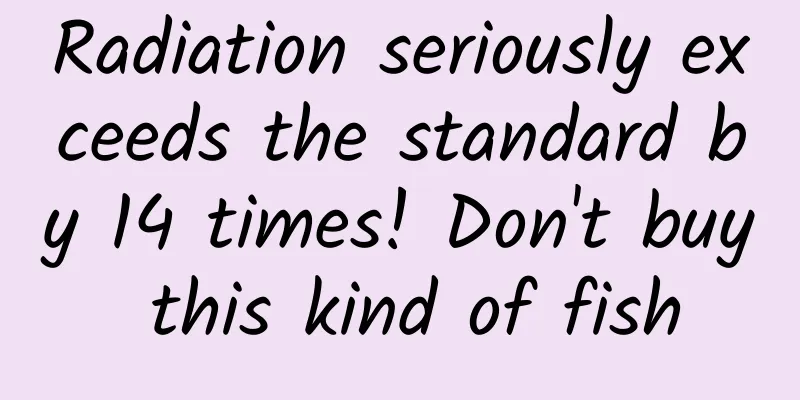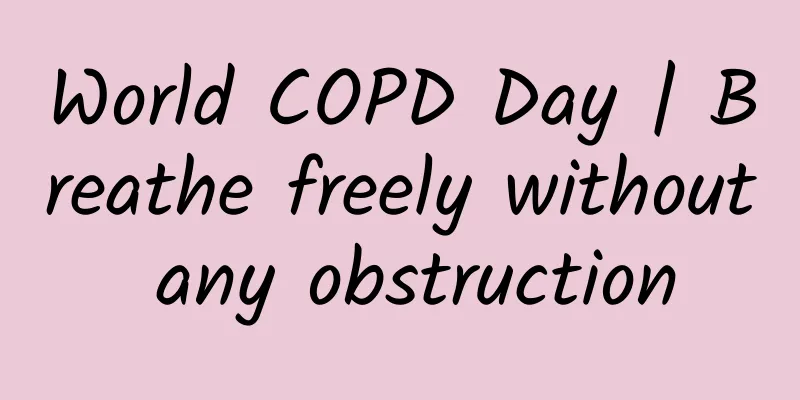Radiation seriously exceeds the standard by 14 times! Don't buy this kind of fish

|
A marine fish called "Hiroshima scorpionfish" caught off the coast of Fukushima Prefecture, Japan, was recently found to have serious excessive radiation levels. On the 8th, the Japanese government again instructed Fukushima Prefecture to suspend the sale of this marine fish. A species of marine fish near the coast of Fukushima Prefecture, Japan, was found to have radiation levels seriously exceeding the limit △ CCTV Finance "World Finance" column video According to a message released by the Ministry of Health, Labour and Welfare of Japan on the 8th, the test results as of the 7th showed that the activity of radioactive cesium contained in the "Scorpionfish" caught near the coast of Fukushima Prefecture reached 1,400 becquerels per kilogram, far exceeding the Japanese food hygiene standard of 100 becquerels per kilogram. In fact, the "Hyderabad scorpionfish" caught off the coast of Fukushima Prefecture had excessive levels of radioactive substances in February and April last year, and their sale was temporarily suspended. However, the suspension was lifted in December last year. According to previous reports by Japanese media, after the accident at the Fukushima Daiichi Nuclear Power Plant of Tokyo Electric Power Company, the Japanese government suspended the sale of up to 44 types of seafood in the waters near Fukushima Prefecture, but these restrictions were later lifted one after another. The 2011 "3.11" earthquake caused the core melt of the Fukushima Daiichi Nuclear Power Plant and the leakage of radioactive materials. The continuous core cooling operation and the influx of rainwater and groundwater into the reactor facilities produced a large amount of nuclear wastewater, which is increasing. In April last year, the Japanese government, despite strong opposition at home and abroad, decided to discharge millions of tons of nuclear wastewater from the Fukushima Daiichi Nuclear Power Plant into the sea after filtering and diluting it. TEPCO restarts internal investigation of containment vessel at Fukushima Daiichi nuclear power plant Nearly 11 years have passed since the Fukushima nuclear accident. Yesterday, Tokyo Electric Power Company restarted its internal investigation into the No. 1 unit of the Daiichi Nuclear Power Plant, but the decommissioning of the entire nuclear power plant is still nowhere in sight. The building next to the reporter near Tokyo Shinbashi Station is the headquarters of Tokyo Electric Power Company. Yesterday, TEPCO reopened the investigation of nuclear residues inside the containment vessel of Unit 1. Due to the high radiation level inside the containment vessel, the investigation was conducted by remotely controlled robots. As a preliminary preparation for the decommissioning of the nuclear power plant, the investigation was originally scheduled to be carried out last month, but it was stopped after just over two hours due to a technical failure. It is expected that the entire investigation after the restart will last about seven months. In the Fukushima nuclear accident, the reactor cores of units 1 to 3 of the Daiichi Nuclear Power Plant all melted down, and a large amount of nuclear residue was formed, which became the biggest obstacle to the decommissioning work. More than a week ago, the robotic arm used to remove the nuclear residue finally arrived in Fukushima, and it will be put into operation within the year at the earliest. Although TEPCO said it would complete the decommissioning work within 40 years of the nuclear accident, Japanese media questioned that this process might take longer and the prospects are unclear. Another legacy of the Fukushima nuclear accident - the treatment of nuclear contaminated water - is even more controversial. Facing questions and opposition from both home and abroad about the plan to discharge nuclear contaminated water into the sea, TEPCO has been stepping up its publicity efforts and has released a brochure claiming that the practice of discharging into the sea has minimal impact on the human body and the environment. On the 14th of this month, the International Atomic Energy Agency will send a team of experts to Japan to conduct an investigation in Fukushima to verify the safety of the plan to discharge into the sea. The third legacy of the Fukushima nuclear accident is that a large number of local residents have left their homes, and the number is still more than 27,000. Although the Japanese government will continue to lift residential restrictions in some areas around the nuclear accident this spring, a survey shows that only about 10% of Fukushima refugees are willing to return to their hometowns. Source: CCTV Finance (ID: cctvyscj) |
<<: What are compressed biscuits? What flavors do compressed biscuits have?
Recommend
How come my breast fibroids disappeared on their own?
In daily life, female breasts are a critical part...
What is the cause of the enlarged cervix?
The cervix is a very important reproductive par...
What to do if accessory breast is swollen
Breasts are sexual organs that grow after women e...
What are the reactions of 40 days of pregnancy?
The forty days of pregnancy should be considered ...
There is a lump in the breast that occasionally hurts
Since many women now suffer from breast hyperplas...
What is the cause of tinnitus during confinement?
As we all know, having a child is a very exhausti...
Will I get pregnant if I have sex five days after my period ends?
There is a possibility of pregnancy if you have s...
What are the symptoms of female breast lobular hyperplasia
Generally, middle-aged women are more likely to s...
Special planning of the “Healthy through Food” series | Delicious crabs, can children enjoy their feast?
The autumn weather is clear and the colors are pl...
Leep knife treatment of cervical hypertrophy
The sentence "Who made women" is very w...
What should I do if my menstruation is delayed after taking Chinese medicine?
Every woman has her period every month. Under nor...
Cervical erosion has a foul odor
A woman's uterus is actually a very fragile a...
What is the reason for the increase of vaginal discharge?
Leucorrhea is a fluid secreted from the female va...
How to treat gynecological odor
Women often have odor in their private parts, and...









